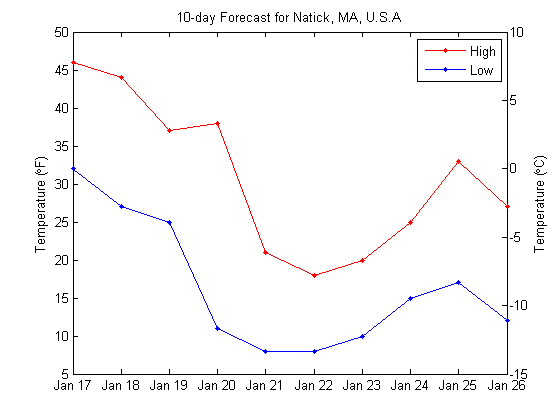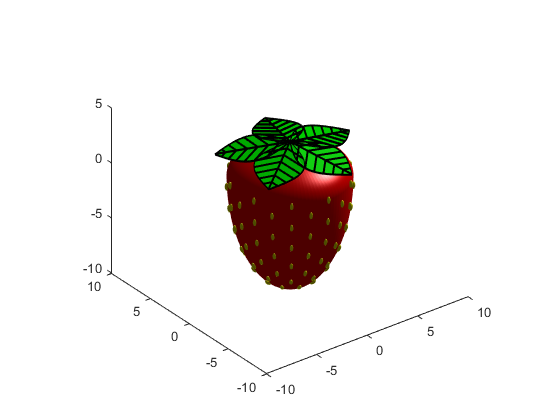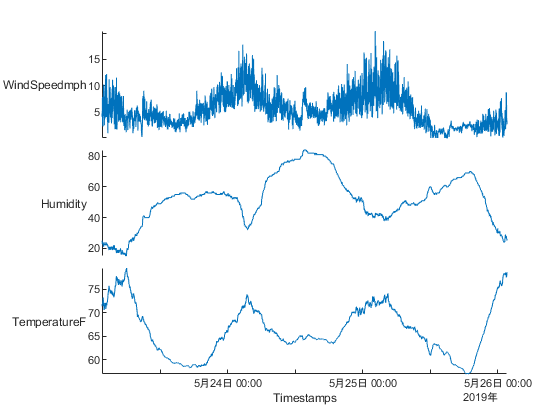World Bank API Access
Sean‘s pick this week is World Bank API Access by Kim9091.
Last year, I blogged about writing your own function signatures for code suggestions in MATLAB. Today, I found my first instance of someone using this in the wild! And on a well documented useful tool to boot.
Kim9091’s World Bank API takes care of making the HTTP requests to get data from the World Bank. But not only that, there’s also a live script that documents the capabilities and provides examples. Let’s give the example a whirl.
% Make the API Connection api = wb; % Fetch 2015 GDP Data gdp2015 = query(api, 'source', '2', 'series', 'NY.GDP.PCAP.CD', ... 'country', 'all', 'time', 'YR2015')
gdp2015 =
struct with fields:
page: 1
pages: 1
per_page: 9999
total: 264
lastupdated: '2019-01-30'
source: [1×1 struct]
The data comes back as a series of nested structs and cells. To make it easier to work with, we’ll convert the struct to a table.
gdp2015 = struct2table(gdp2015.source.data);
Then we’ll remove all of the empty values.
empties = cellfun(@isempty, gdp2015.value); gdp2015 = gdp2015(~empties, :)
gdp2015 =
248×2 table
variable value
____________ ____________
[3×1 struct] [6.4291e+03]
[3×1 struct] [9.8352e+03]
[3×1 struct] [1.2453e+04]
[3×1 struct] [3.2813e+03]
...
Since empty values were not stored as NaNs, the array was a cell. We can now convert it to double by vertically concatenating the value of each cell.
gdp2015.value = vertcat(gdp2015.value{:})
gdp2015 =
248×2 table
variable value
____________ __________
[3×1 struct] 6429.1
[3×1 struct] 9835.2
[3×1 struct] 12453
[3×1 struct] 3281.3
...
And finally a plot.
histogram(gdp2015.value) xlabel('GDP ($US)') ylabel('Count')

Comments
Give it a try and let us know what you think here or leave a comment for Kim9091.
Published with MATLAB® R2019a
- Category:
- Picks
 Cleve’s Corner: Cleve Moler on Mathematics and Computing
Cleve’s Corner: Cleve Moler on Mathematics and Computing The MATLAB Blog
The MATLAB Blog Guy on Simulink
Guy on Simulink MATLAB Community
MATLAB Community Artificial Intelligence
Artificial Intelligence Developer Zone
Developer Zone Stuart’s MATLAB Videos
Stuart’s MATLAB Videos Behind the Headlines
Behind the Headlines File Exchange Pick of the Week
File Exchange Pick of the Week Hans on IoT
Hans on IoT Student Lounge
Student Lounge MATLAB ユーザーコミュニティー
MATLAB ユーザーコミュニティー Startups, Accelerators, & Entrepreneurs
Startups, Accelerators, & Entrepreneurs Autonomous Systems
Autonomous Systems Quantitative Finance
Quantitative Finance MATLAB Graphics and App Building
MATLAB Graphics and App Building








Comments
To leave a comment, please click here to sign in to your MathWorks Account or create a new one.